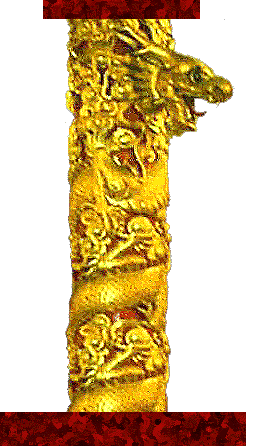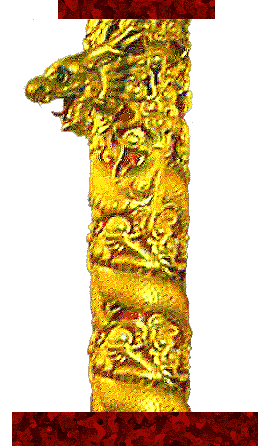| |
On the 19th floor of the Federal Building on December 6, 1977, three days after his 27th birthday, Wayne Yee took his place in front of the House of Representatives Subcommittee on Juvenile Crime. He passed out copies of the speech he was about to make and then delivered it eloquently.
NOTE: Transcribed in italics between the next paragraphs is the voice of Wayne Yee in conversation with an undercover agent a mere six weeks after Wayne, the Executive Director of Chinese Youth Alternatives, addressed the Congressional Subcommittee. The contrast is spectacular.
Among other things in his federal speech "prepared and writtened" [sic] by himself, Wayne viewed "...the relationship between crime and unemployment..." and blamed much of Chinatown's problem on government's refusal to give that issue "...a top priority." He saw Chinatown as "...unique in comparison with other minority ghettos. Although Chinatown is factually recognized as a ghetto with poor social conditions, language barriers, limited employment opportunities, and severe poverty, it is also a major tourist attraction site" internationally renowned. He spoke of the Asian community's "...uncontrollable crime and corruption..." where "...a climate of fear and [intimidation] exists...." This perpetuated "the community philosophy of enclosing itself from the outside establishment, becoming a city within a city."
I've been trying to get Asian females to do porno movies or still shots. I can only get imports from Hong Kong. I want to do high-class stuff and not this low stuff.
Wayne went on to tell the Congressional Subcommittee that instead of gainful employment, Chinatown's youth were "openly recruited and used to commit crimes such as extortion, violence, smuggling, and other petty economic thievery. Youth are easily manipulated in involving themselves with this criminal/corruption element." He called for "an effort to offer constructive alternatives...to assist these 'not angels, but not devils, either' youths."
Sure, some of (my young guys) need to travel. They are very obedient, and lips are sealed. They do just what they are told. Like the guy that got busted for murder...he didn't say one word...I tell these kids when to back off. They aren't crazy like the Samoans. Most important is to be patient. Patience is the virtue. There is a Chinese saying: "Ten years is not too late for revenge." Women are like clothing; they can be replaced. Your brother is like a limb; can't be replaced.
Wayne pointed out to the Conyers committee that "...delinquent youths need good jobs and skills training to break away from the vicious circle of criminal activities, and to bring positive hopes for their future and career. There is presently a lack of existing private and public programs that sufficiently serve to lessen the pressures of the daily problems that poor Chinese families face."
I'd like a good stable of females, real classy, to operate. I know a lot of rich old Chinese men who would pay good money...It would be nice to have a place in Sausalito, away from the city's tensions, to run a callgirl-type action. Free booze, nice place...I don't trust white girls because they'll turn on you. Maybe the girls on the ranches in Reno would want to do this on their days off.
Wayne intoned to his Congressional audience that "delinquent youths cannot compete with their 'straight' peers in obtaining employment," and later challenged "...public employment institutions (to) establish a special category to fund and employ these youths so that they may have a chance for employment...as opposed to available criminal opportunities (or) the Chinese youth delinquency phenomenon will...persist, increasing every day, haunting society in the future."
Right now my connections in Sacramento are getting better and better. They are controlling the gambling in Sacramento at a thousand dollars a night...so I'm bringing my boys in there!
After speaking from these prepared pages, Wayne declaimed for several minutes without benefit of notes. In substance, he said he had never had any problem dealing with different factions of the youth gangs. He mentioned having brought together, in the summer of 1976, various groups to produce the Juvenile Justice Book (a collection of statements from kids about their treatment by police, all of which adopted a negative posture toward law enforcement). He thought this demonstrated that the young people had enough in common to be able to appreciate each other when together.
My attorneys so far have done things for me free because I'm considered Number One in delinquency problems. I can bring the groups of kids together. I don't want to antagonize these groups of people because I want to use them. I'm into fund-raising. When the money comes in, I don't want to be responsible for the bookkeeping. I just want to use it. I'm not an administrator. I'm a freelance community activist. I like to draw up my own objectives, and I don't like people telling me what to do.
Wayne deplored the fact that existing programs didn't meet (the kids') needs. The problem with these programs was their lack of being oriented to the future. They seemed to offer only an immediate solution. He said they could make more money involving themselves with the criminal elements, which were well organized and supported by adults. "So you can't really blame them."
I can depend on A.B.C.'s (American-born Chinese) because they can reach upper middle-class people for mainly drugs...I made a check in Sacramento and found it to be low in its drug supply. All the old dealers have been closed down by the cops. New faces are needed.
He accused the Chinatown rich of controlling the police and of organizing police sweeps for the purpose of establishing a gang file of names, addresses, phone numbers, and other information.
My name is mud because of the bust. I'm getting a lawyer from Sacramento. I've been stalling for time. I haven't entered a plea. They can't do nothing to me anyway. If worse comes to worst, I'll only get probation for a misdemeanor.
Wayne closed his speech by saying: "After recent violence, Chief Gain established a Gang Task Force to gather some evidence and apprehend some suspects. Recently, I have been talking to a lot of people about the Task Force, and I have heard that they have been stopping a lot of kids and asking them questions. The Task Force cannot succeed because there is no relationship between them and the Chinese community."
That speech marked the high noon of Wayne's youthful political career. He presented many good points which constituted an intelligent appraisal of the sad situation that was ruining so many young lives in Chinatown. His arrogant estimation of the Gang Task Force, however, fell short of the mark.
Twelve animals symbolize the cycle of the Chinese lunar calendar. According to the Chinese zodiac, 1977 was the Year of the Serpent. The Task Force had set out to prove Wayne Yee synonymous with the year's reptilian namesake.
The name "Wayne Yee" had created confusion in the headquarters of the Gang Task Force from the moment of the unit's inception in mid-September 1977 somewhat more than a week after the Golden Dragon massacre.
Chinese Youth Alternatives' Wayne Yee figured prominently in discussions around the office because the old Chinatown hands already knew him as precisely the kind of adult he would describe on December 6th in his speech before the Congressional Subcommittee--a corrupter of youth in the Asian settlement.
But there was a second Wayne Yee. That Wayne, a social type who knew everybody around Chinatown and was a friendly, outgoing sort of person, had been present as a patron at the Golden Dragon during the shooting; therefore, he might offer invaluable information in identifying the shooters.
Thus, there were two Wayne Yees to deal with from the beginning. Neither had a street name as did Hotdog Louie or Mouse Lee or Softhead Kwan or Perch Chan, except that C.Y.A.'s Wayne was sometimes called "the boss" by his own flock--a tag hardly appropriate for use by the Dragon Force.
So, although no individual cop could be fingered as its originator, a solution gradually evolved in ordinary conversation among the policemen themselves. It reflected a deep-seated antagonism toward the C.Y.A. politico. The survivor of the Golden Dragon became the "good" Wayne Yee, whereas the Executive Director of Chinese Youth Alternatives wound up as the "bad" Wayne Yee.
How Wayne became "bad" in the estimation of police when everything he publicly represented was so admirable is especially sad in light of the enormous potential for good his self-created position offered for the youth of Chinatown. Although it is true that he had an adult criminal record of arrests for assault with a deadly weapon, kidnapping, and conspiracy, all in 1972 while still 21, in the same year he had performed an about-face and, it seemed, pointed himself in another direction.
Perhaps it was because, in that year, a vacuum was created in the Asian community's youth affairs which he may have wanted to fill.
|
|









